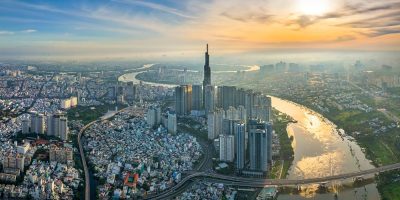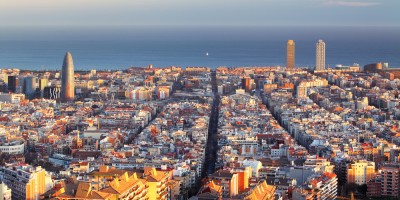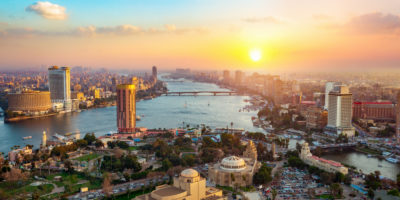-
Egito
Incentives for green hydrogen production in Egypt
25 Agosto 2023
- Sem categoria
- Investimentos estrangeiros
- Energias renováveis
Summary
Egypt aims to be Africa’s first green hydrogen producer by incentivizing companies to invest in the sector. Collaborative efforts with Germany and European companies are underway to enhance hydrogen projects and transport. Incentives include financial subsidies, tax exemptions, and administrative advantages, contingent on project conditions like commissioning, foreign funding, local materials use, and community development.
What is the status of green energy in Egypt and what role does green hydrogen play in this?
It is currently estimated that Egypt has the potential to generate 350 GW of wind energy and about 650 GW of solar energy per year, as per the Minister of Electricity and Renewable Energy’s (Mohamed Shaker El-Marqabi) declaration. As part of its National Climate Strategy 2050, Egypt has set itself the goal of reducing its carbon emissions, promoting the use of renewable energy sources and using alternative forms of energy, including green hydrogen. The importance the Egyptian government attaches to green hydrogen is evident, not least with the recent cabinet meeting on 17th of May 2023.
With a view to becoming the first African country to produce green hydrogen, new incentives for green hydrogen and derivatives projects were presented at the cabinet meeting. Based on an investment of 13 billion USD, the legal and financial benefits (new incentive package) that companies in this field can benefit from in the future were presented.
What agreements exist between Egypt and third countries to promote green hydrogen?
Agreement between Egypt and Germany on green hydrogen
The new incentive package was preceded by a meeting between the German-Egyptian Partnership for Green Hydrogen Projects committee and Egyptian officials on the 14th of March 2023. This resulted in a joint roadmap for supporting hydrogen production companies and promoting hydrogen transport and marketing. At this meeting, it was decided that the parties, the Egyptian Minister of International Cooperation (Rania Al-Mashat) and the Egyptian Minister of Public Enterprises (Mahmoud Esmat), will establish a platform to promote the use of green hydrogen.
At the above-mentioned meeting, Egypt and Germany signed two Memoranda of Understanding (MoU) to enhance cooperation in the field of green hydrogen.
The Egyptian Government also recently signed other MoUs with seven European leading companies and global alliances to produce new and renewable energy, to establish green hydrogen production complexes in Ain Al-Sokhna and the Red Sea Governorate.
The German-Egyptian cooperation in the field of green hydrogen follows Egypt’s goal to establish itself as a hub for producing green hydrogen.
Agreement between Egypt and third countries on green hydrogen
Egypt has also partnered with the European Union to advance green hydrogen production. Furthermore, in 2022, on the occasion of COP27, Egypt signed a series of MoUs with several international organisations to engage foreign investment in green hydrogen production and make Egypt a transit route for clean energy to Europe.
MoUs with global companies and alliances have defined the Red Sea Governorate as the location where green hydrogen projects will be carried out in the future.
Are there investment incentives for the production of green hydrogen in Egypt?
In the cabinet meeting of 17th of May 2023, the Egyptian Prime Minister Mustafa Madbuli stated that Egypt was offering the “largest” package of investment incentives and facilitations to companies wishing to invest in green hydrogen production projects in Egypt. He further announced the formation of a working group composed of representatives of the authorities involved to elaborate these investment incentives.
The statement indicated that companies involved in green energy projects in Egypt will benefit from incentives set out in the Law drafted in the cabinet meeting of 17th of May 2023 and Investment Law No. 72 of 2017. This targets companies involved in the “production, storage and export of green hydrogen”.
What investment incentives for the production of green hydrogen in Egypt are provided for in the draft Law of 17th of May 2023?
Financial incentives
Investments in the green hydrogen sector are subsidised in the amount of 33 % to 55 % of the income tax payable. The Ministry of Finance pays the subsidy within 45 days after the deadline for filing the tax return. The subsidy itself is not taxable. The exact conditions for the payment of the subsidy are still to be determined by the Cabinet.
All machinery, equipment, materials, consumables and vehicles (except private vehicles) used in green hydrogen and derivative projects are exempt from VAT.
No VAT is levied on exports of green hydrogen and its derivatives.
The Ministry of Finance pays most of the duties and certification costs associated with setting up the business and all import duties on imported goods used by the establishment. Further, it pays the taxes that would have been levied on the real estate used for the activity, if any.
Administrative incentives
Projects in the field of green hydrogen or its derivatives benefit from the so-called golden licence, as it is called in the Investment Law No. 72 of 2017.
All raw materials, spare parts and vehicles required for operations can be freely imported or exported directly or through distributors without the need for registration in the Importers’ Register.
The incentives apply to projects and their extensions throughout the contract period if the project agreements are concluded within a maximum of 7 years from the date of commercial commissioning.
Requirements
The investment incentives apply when:
- the project is commissioned within 5 years of the signing of the project agreement
- at least 70 % of the investment costs come from foreign funds
- at least 20 % of the locally used materials originate from Egypt
- training programmes are set up for local workers and know-how is shared
- the project company draws up a development plan for the communities in which it will operate
What investment incentives for the production of green hydrogen in Egypt are provided for in the Investment Law No. 72 of 2017?
The tax incentives granted under the Investment Law No. 72 of 2017 provide for special, general and additional incentives.
Special incentives
These are tax reductions limited to 7 years for projects that are started within 3 years (extendable to 6 years) after the provisions of the Law No. 72 of 2017 came into force (i.e. by October 2023). The investment costs consist of equity capital, long-term loans to finance the construction of the project’s movable and immovable assets, and working capital. The tax base is the taxable net profit, which is taxed at the following rates:
1) Tax exemption on 50 % of the investment costs for the implementation of a project in geographical locations with the greatest development needs (underdeveloped locations) designated by the Central Agency for Public Mobilization and Statistics (CAPMS)
The law identifies these sites as “Zone A”. According to the implementing regulations, “Zone A” includes:
- the Suez Canal Economic Zone
- the Golden Triangle Special Economic Zone
- the New Administrative Capital Zone
- the south of Giza province
- the provinces of Port Said, Ismailia and Suez (east of the canal) connected to the Suez Canal.
- border provinces, including Red Sea province south of Safaga
- the provinces in upper Egypt
- other areas in greatest need of development (to be determined by the Prime Minister)
2) Tax exemption on 30 % of the investment costs of a project located in the remaining geographical areas outside “Zone A”, referred to as “Zone B”, and operating in certain sectors.
This includes projects that:
- are active in the field of renewable energies
- export their products outside Egypt
- be carried out by a small or medium-sized (SME)
General incentives
Parallel to the special investment incentives, general investment incentives also apply. For example, projects are exempt from certain administrative requirements and fees for a period of 5 years from the date of their registration in the commercial register. Furthermore, temporary duty-free imports and exports are possible.
Additional incentives
Additional investment incentives may also be granted by decision of the Council of Ministers:
- special customs offices for the export or import of the investment project
- bearing of the value of the utility supply (such as electricity and water supply) of the property intended for the investment project or part thereof by the State
- partial bearing of the costs of a technical training programme for employees by the State
- reimbursement of half of the value of the land allocated for industrial projects, provided that the activity was started within two years of the transfer of the land
- free allocation of land for certain strategic activities
- under certain conditions, granting of a general permit for the construction, operation and management of the project as well as for the provision of the land required for this purpose. This permit shall also be deemed to be a building permit and shall be effective in its own right without any further action being required. In December 2022, the Egyptian Cabinet granted general approval for several projects.
- incorporation shares of capital companies subject to the Investment Law No. 72 of 2017 may be traded during the first two fiscal years of the company, subject to the approval of the competent Minister
- simplified acquisition of real estate, provided it is used for the project
Takeaways
- Egypt’s Green Hydrogen Drive: Egypt is strategically embracing green hydrogen production as a pivotal element of its renewable energy vision. The country’s ambitious goals and extensive incentives underscore its commitment to becoming a leading player in the global green energy landscape.
- International Collaborations: Collaborations with Germany and European partners highlight Egypt’s proactive approach to international cooperation in advancing green hydrogen technologies. Memoranda of Understanding and joint roadmaps are facilitating knowledge exchange and investments for robust hydrogen projects.
- Comprehensive Incentive Framework: Egypt’s multifaceted incentive framework, including financial subsidies, tax exemptions, and administrative benefits, showcases the government’s determination to attract investments in green hydrogen production. Stringent conditions for benefiting from these incentives emphasize the nation’s dedication to sustainable practices and local community development.
When one thinks about Iran energy resources, immediately come to mind the fossil fuels resources – such as oil and gas – that characterize Iran’s economy. But Iran has also a great potential in the field of renewable energies – such as wind, solar, biomass and geothermal energy – which makes the Asian country one of the most interesting for the energy sector.
The strategic plan of Iran for the energy sector provides for the optimization of fossil fuels exploitation and the improvement of renewable energy production, in order to satisfy the growing need to energy in the country.
In this short post r we will see how foreign investors can apply to the Organization of Renewable Energy of Iran to obtain the permits needed, build renewable energy plants and obtain the preferential rates promoted by the Iranian Government.
In fact, according to recent laws and regulations, the Organization of Renewable Energy of Iran (SUNA) – under auspices of Energy Ministry of Iran – purchases the electric energy from investors through a Power Purchase Agreement (PPA). PPA establishes new feed-in tariffs for a period that recently has been increased from 5 to 20 years. It also should be noted that feed-in tariffs differ by power plant technology type and will be annually adjusted, without altering the contracts already in force.
The Procedure for Project Registration
As a first step of the procedure, foreign investors need to submit an application for project registration to SUNA. As only Iranian legal entities are allowed to apply, foreign investors need to incorporate a company under Iranian law, the shares of which may also be wholly owned by foreign investors (read here my post on setting up a company in Iran). Alternatively, foreign investors may purchase shares of existing Iranian companies, which would be the applicant of the registration.
After verifying compliance with the necessary requirements, the construction permit will be issued. It is noteworthy that the foreign investor holding the permit is not allowed to transfer more than 25% of its shares.
Afterwards, foreign investors need to acquire three different licenses: the Environmental permit, the Grid Connection permit and the Land permit. These permits shall be obtained within six months from the construction permit. If the applicant has obtained 2 of 3 permits at the expiry of the period, this might be extended.
Only after obtaining the said three permits, the foreign investors may conclude the Power Purchase Agreement with SUNA and start the construction of the power plant.
Please note also that in order to benefit from the abovementioned tariffs, Bio Mass, Geothermal and Micro Hydro power plants have to reach commercial operation within 30 months. This period is reduced to – respectively – 24 and 15 months for Wind Farms and Solar power plants. If these periods have passed before starting of the commercial operation, the then-current feed-in tariffs would apply.
Notwithstanding these challenges, Iran is one of the most attractive markets of renewable energies, with vast resources of renewable energies and supporting governmental policies.
It is evident that establishing a power plant requires different legal stages aimed, mainly but not only, to obtain the essential licenses/permits by complying with State regulation. Accordingly, it is of utmost importance to get in touch with Iranian lawyers specialized in this field, in order to have a comprehensive consultancy, which leads the investor from the pre-investment analysis to the construction of the energy plant.
Scrivi a Christian
Iran – Foreign investments in Renewable Energy Sector
20 Fevereiro 2017
-
Irão
- Energias renováveis
Summary
Egypt aims to be Africa’s first green hydrogen producer by incentivizing companies to invest in the sector. Collaborative efforts with Germany and European companies are underway to enhance hydrogen projects and transport. Incentives include financial subsidies, tax exemptions, and administrative advantages, contingent on project conditions like commissioning, foreign funding, local materials use, and community development.
What is the status of green energy in Egypt and what role does green hydrogen play in this?
It is currently estimated that Egypt has the potential to generate 350 GW of wind energy and about 650 GW of solar energy per year, as per the Minister of Electricity and Renewable Energy’s (Mohamed Shaker El-Marqabi) declaration. As part of its National Climate Strategy 2050, Egypt has set itself the goal of reducing its carbon emissions, promoting the use of renewable energy sources and using alternative forms of energy, including green hydrogen. The importance the Egyptian government attaches to green hydrogen is evident, not least with the recent cabinet meeting on 17th of May 2023.
With a view to becoming the first African country to produce green hydrogen, new incentives for green hydrogen and derivatives projects were presented at the cabinet meeting. Based on an investment of 13 billion USD, the legal and financial benefits (new incentive package) that companies in this field can benefit from in the future were presented.
What agreements exist between Egypt and third countries to promote green hydrogen?
Agreement between Egypt and Germany on green hydrogen
The new incentive package was preceded by a meeting between the German-Egyptian Partnership for Green Hydrogen Projects committee and Egyptian officials on the 14th of March 2023. This resulted in a joint roadmap for supporting hydrogen production companies and promoting hydrogen transport and marketing. At this meeting, it was decided that the parties, the Egyptian Minister of International Cooperation (Rania Al-Mashat) and the Egyptian Minister of Public Enterprises (Mahmoud Esmat), will establish a platform to promote the use of green hydrogen.
At the above-mentioned meeting, Egypt and Germany signed two Memoranda of Understanding (MoU) to enhance cooperation in the field of green hydrogen.
The Egyptian Government also recently signed other MoUs with seven European leading companies and global alliances to produce new and renewable energy, to establish green hydrogen production complexes in Ain Al-Sokhna and the Red Sea Governorate.
The German-Egyptian cooperation in the field of green hydrogen follows Egypt’s goal to establish itself as a hub for producing green hydrogen.
Agreement between Egypt and third countries on green hydrogen
Egypt has also partnered with the European Union to advance green hydrogen production. Furthermore, in 2022, on the occasion of COP27, Egypt signed a series of MoUs with several international organisations to engage foreign investment in green hydrogen production and make Egypt a transit route for clean energy to Europe.
MoUs with global companies and alliances have defined the Red Sea Governorate as the location where green hydrogen projects will be carried out in the future.
Are there investment incentives for the production of green hydrogen in Egypt?
In the cabinet meeting of 17th of May 2023, the Egyptian Prime Minister Mustafa Madbuli stated that Egypt was offering the “largest” package of investment incentives and facilitations to companies wishing to invest in green hydrogen production projects in Egypt. He further announced the formation of a working group composed of representatives of the authorities involved to elaborate these investment incentives.
The statement indicated that companies involved in green energy projects in Egypt will benefit from incentives set out in the Law drafted in the cabinet meeting of 17th of May 2023 and Investment Law No. 72 of 2017. This targets companies involved in the “production, storage and export of green hydrogen”.
What investment incentives for the production of green hydrogen in Egypt are provided for in the draft Law of 17th of May 2023?
Financial incentives
Investments in the green hydrogen sector are subsidised in the amount of 33 % to 55 % of the income tax payable. The Ministry of Finance pays the subsidy within 45 days after the deadline for filing the tax return. The subsidy itself is not taxable. The exact conditions for the payment of the subsidy are still to be determined by the Cabinet.
All machinery, equipment, materials, consumables and vehicles (except private vehicles) used in green hydrogen and derivative projects are exempt from VAT.
No VAT is levied on exports of green hydrogen and its derivatives.
The Ministry of Finance pays most of the duties and certification costs associated with setting up the business and all import duties on imported goods used by the establishment. Further, it pays the taxes that would have been levied on the real estate used for the activity, if any.
Administrative incentives
Projects in the field of green hydrogen or its derivatives benefit from the so-called golden licence, as it is called in the Investment Law No. 72 of 2017.
All raw materials, spare parts and vehicles required for operations can be freely imported or exported directly or through distributors without the need for registration in the Importers’ Register.
The incentives apply to projects and their extensions throughout the contract period if the project agreements are concluded within a maximum of 7 years from the date of commercial commissioning.
Requirements
The investment incentives apply when:
- the project is commissioned within 5 years of the signing of the project agreement
- at least 70 % of the investment costs come from foreign funds
- at least 20 % of the locally used materials originate from Egypt
- training programmes are set up for local workers and know-how is shared
- the project company draws up a development plan for the communities in which it will operate
What investment incentives for the production of green hydrogen in Egypt are provided for in the Investment Law No. 72 of 2017?
The tax incentives granted under the Investment Law No. 72 of 2017 provide for special, general and additional incentives.
Special incentives
These are tax reductions limited to 7 years for projects that are started within 3 years (extendable to 6 years) after the provisions of the Law No. 72 of 2017 came into force (i.e. by October 2023). The investment costs consist of equity capital, long-term loans to finance the construction of the project’s movable and immovable assets, and working capital. The tax base is the taxable net profit, which is taxed at the following rates:
1) Tax exemption on 50 % of the investment costs for the implementation of a project in geographical locations with the greatest development needs (underdeveloped locations) designated by the Central Agency for Public Mobilization and Statistics (CAPMS)
The law identifies these sites as “Zone A”. According to the implementing regulations, “Zone A” includes:
- the Suez Canal Economic Zone
- the Golden Triangle Special Economic Zone
- the New Administrative Capital Zone
- the south of Giza province
- the provinces of Port Said, Ismailia and Suez (east of the canal) connected to the Suez Canal.
- border provinces, including Red Sea province south of Safaga
- the provinces in upper Egypt
- other areas in greatest need of development (to be determined by the Prime Minister)
2) Tax exemption on 30 % of the investment costs of a project located in the remaining geographical areas outside “Zone A”, referred to as “Zone B”, and operating in certain sectors.
This includes projects that:
- are active in the field of renewable energies
- export their products outside Egypt
- be carried out by a small or medium-sized (SME)
General incentives
Parallel to the special investment incentives, general investment incentives also apply. For example, projects are exempt from certain administrative requirements and fees for a period of 5 years from the date of their registration in the commercial register. Furthermore, temporary duty-free imports and exports are possible.
Additional incentives
Additional investment incentives may also be granted by decision of the Council of Ministers:
- special customs offices for the export or import of the investment project
- bearing of the value of the utility supply (such as electricity and water supply) of the property intended for the investment project or part thereof by the State
- partial bearing of the costs of a technical training programme for employees by the State
- reimbursement of half of the value of the land allocated for industrial projects, provided that the activity was started within two years of the transfer of the land
- free allocation of land for certain strategic activities
- under certain conditions, granting of a general permit for the construction, operation and management of the project as well as for the provision of the land required for this purpose. This permit shall also be deemed to be a building permit and shall be effective in its own right without any further action being required. In December 2022, the Egyptian Cabinet granted general approval for several projects.
- incorporation shares of capital companies subject to the Investment Law No. 72 of 2017 may be traded during the first two fiscal years of the company, subject to the approval of the competent Minister
- simplified acquisition of real estate, provided it is used for the project
Takeaways
- Egypt’s Green Hydrogen Drive: Egypt is strategically embracing green hydrogen production as a pivotal element of its renewable energy vision. The country’s ambitious goals and extensive incentives underscore its commitment to becoming a leading player in the global green energy landscape.
- International Collaborations: Collaborations with Germany and European partners highlight Egypt’s proactive approach to international cooperation in advancing green hydrogen technologies. Memoranda of Understanding and joint roadmaps are facilitating knowledge exchange and investments for robust hydrogen projects.
- Comprehensive Incentive Framework: Egypt’s multifaceted incentive framework, including financial subsidies, tax exemptions, and administrative benefits, showcases the government’s determination to attract investments in green hydrogen production. Stringent conditions for benefiting from these incentives emphasize the nation’s dedication to sustainable practices and local community development.
When one thinks about Iran energy resources, immediately come to mind the fossil fuels resources – such as oil and gas – that characterize Iran’s economy. But Iran has also a great potential in the field of renewable energies – such as wind, solar, biomass and geothermal energy – which makes the Asian country one of the most interesting for the energy sector.
The strategic plan of Iran for the energy sector provides for the optimization of fossil fuels exploitation and the improvement of renewable energy production, in order to satisfy the growing need to energy in the country.
In this short post r we will see how foreign investors can apply to the Organization of Renewable Energy of Iran to obtain the permits needed, build renewable energy plants and obtain the preferential rates promoted by the Iranian Government.
In fact, according to recent laws and regulations, the Organization of Renewable Energy of Iran (SUNA) – under auspices of Energy Ministry of Iran – purchases the electric energy from investors through a Power Purchase Agreement (PPA). PPA establishes new feed-in tariffs for a period that recently has been increased from 5 to 20 years. It also should be noted that feed-in tariffs differ by power plant technology type and will be annually adjusted, without altering the contracts already in force.
The Procedure for Project Registration
As a first step of the procedure, foreign investors need to submit an application for project registration to SUNA. As only Iranian legal entities are allowed to apply, foreign investors need to incorporate a company under Iranian law, the shares of which may also be wholly owned by foreign investors (read here my post on setting up a company in Iran). Alternatively, foreign investors may purchase shares of existing Iranian companies, which would be the applicant of the registration.
After verifying compliance with the necessary requirements, the construction permit will be issued. It is noteworthy that the foreign investor holding the permit is not allowed to transfer more than 25% of its shares.
Afterwards, foreign investors need to acquire three different licenses: the Environmental permit, the Grid Connection permit and the Land permit. These permits shall be obtained within six months from the construction permit. If the applicant has obtained 2 of 3 permits at the expiry of the period, this might be extended.
Only after obtaining the said three permits, the foreign investors may conclude the Power Purchase Agreement with SUNA and start the construction of the power plant.
Please note also that in order to benefit from the abovementioned tariffs, Bio Mass, Geothermal and Micro Hydro power plants have to reach commercial operation within 30 months. This period is reduced to – respectively – 24 and 15 months for Wind Farms and Solar power plants. If these periods have passed before starting of the commercial operation, the then-current feed-in tariffs would apply.
Notwithstanding these challenges, Iran is one of the most attractive markets of renewable energies, with vast resources of renewable energies and supporting governmental policies.
It is evident that establishing a power plant requires different legal stages aimed, mainly but not only, to obtain the essential licenses/permits by complying with State regulation. Accordingly, it is of utmost importance to get in touch with Iranian lawyers specialized in this field, in order to have a comprehensive consultancy, which leads the investor from the pre-investment analysis to the construction of the energy plant.





















